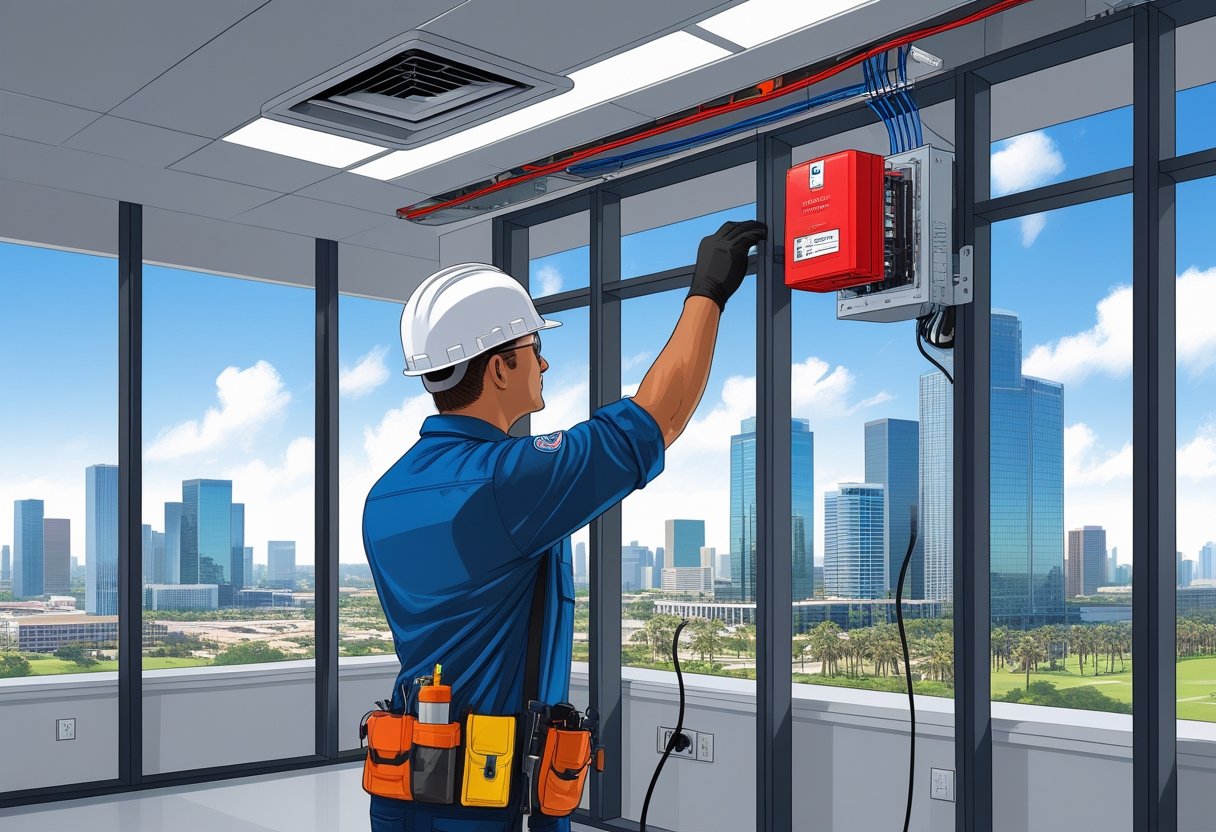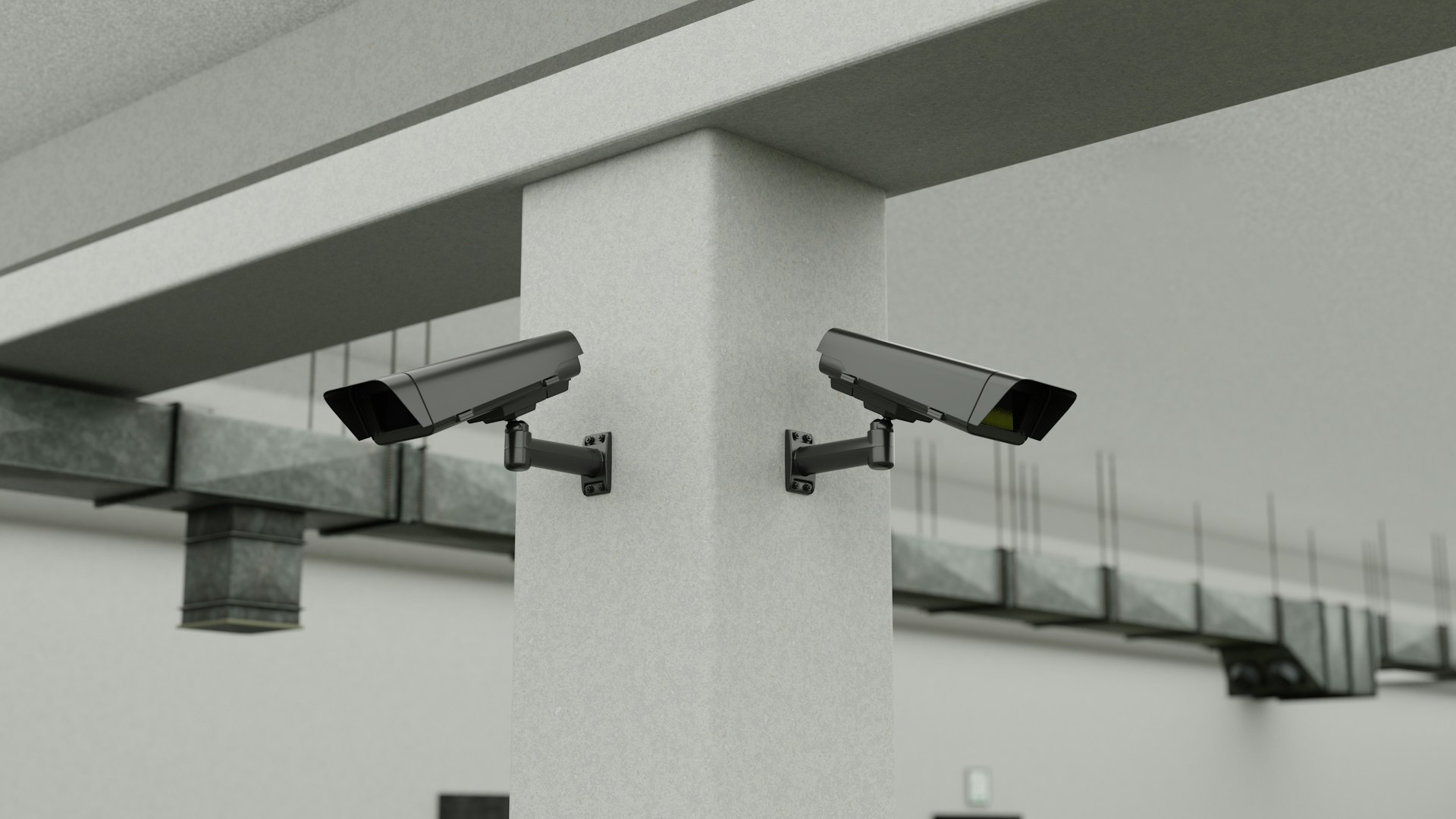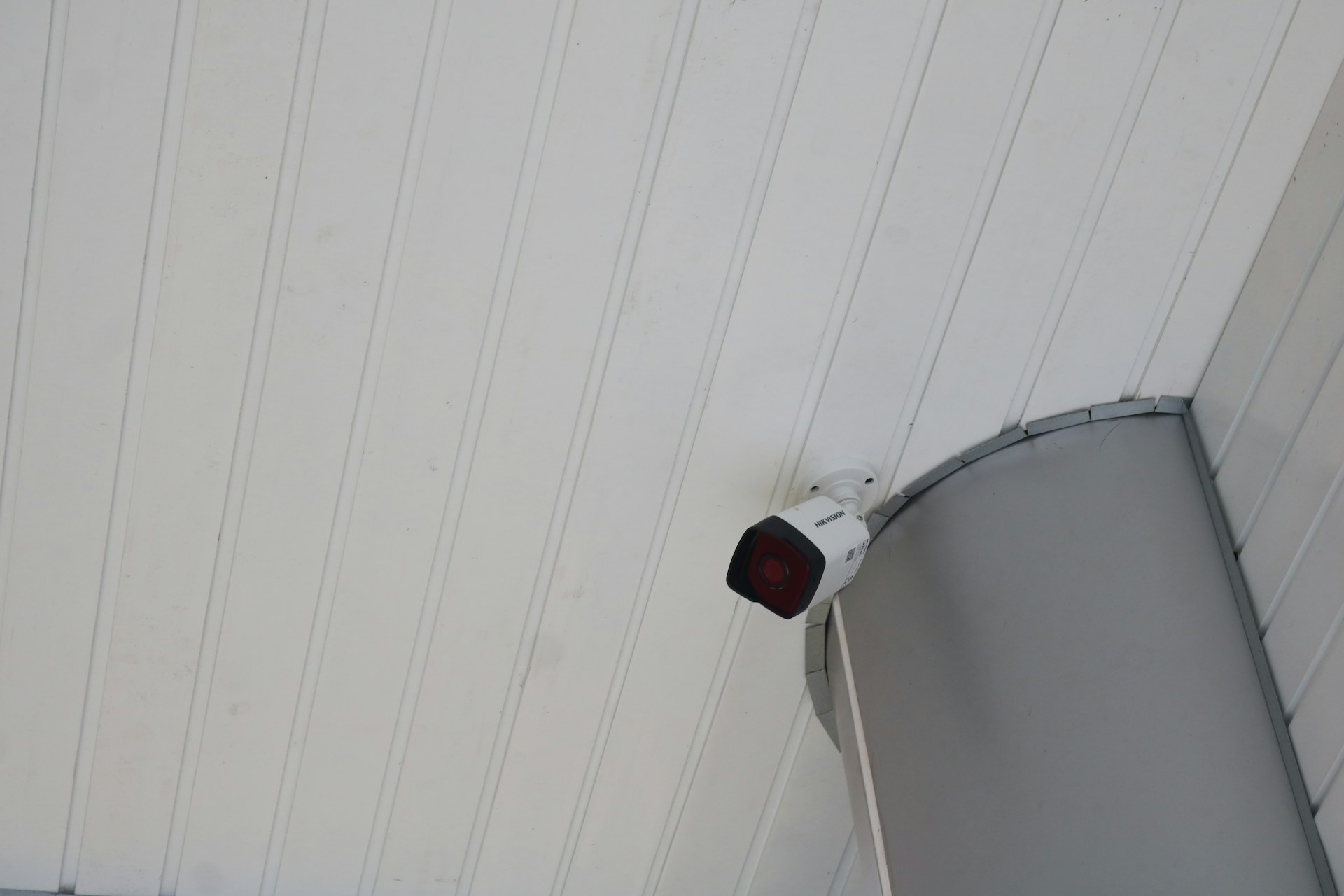When it comes to protecting your building in Houston, fire alarm installation is a critical step you cannot overlook. Choosing the right fire alarm system ensures the safety of your occupants and property, providing peace of mind in the face of potential fire hazards. With advancements in technology, modern fire alarm systems offer enhanced features that not only detect fires swiftly but also integrate seamlessly with other safety systems.
In Houston, various companies specialize in fire alarm installation tailored to both commercial and residential properties. You want to ensure that the installation is carried out by experienced professionals familiar with local building codes and regulations. This expertise not only ensures compliance but also enhances the reliability of your fire protection measures.
By prioritizing a well-designed fire alarm system, you significantly reduce the risk of extensive damage and ensure the safety of everyone in your building. It’s essential to invest time in selecting a qualified service provider who understands the unique needs of the Houston area, ensuring that your fire alarm system is both effective and compliant.
Understanding Fire Alarm Systems for Buildings in Houston
When it comes to installing fire alarm systems in Houston, understanding the various types and essential equipment is crucial. This section will provide insights into specific fire alarm systems, necessary fire protection equipment, and the local building requirements and codes you must adhere to.
Types of Fire Alarm Systems
There are several types of fire alarm systems you may consider for your building in Houston. The main categories include:
- Conventional Fire Alarm Systems: These systems use zones, allowing you to pinpoint the location of smoke or heat detectors. They are cost-effective for smaller buildings.
- Addressable Fire Alarm Systems: More sophisticated than conventional systems, addressable systems send precise information about the specific device triggering the alarm to a central panel. They are ideal for larger facilities.
- Wireless Fire Alarm Systems: These systems reduce installation complexity, as they do not require extensive wiring. They can be easily expanded as your needs change.
Choosing the right type depends on your building's size, usage, and specific requirements.
Essential Fire Protection Equipment
To ensure the effectiveness of your fire alarm system, certain fire protection equipment is essential. Key components include:
- Smoke Detectors: These devices detect smoke and alert occupants. They can be ionization or photoelectric types, each suited for different fire scenarios.
- Heat Detectors: These are generally used in areas where smoke detectors may trigger false alarms. They respond to a rapid rise in temperature.
- Pull Stations: These allow occupants to manually trigger the fire alarm system in case of an emergency. Strategic placement is critical for accessibility.
- Notification Appliances: These include sirens, strobe lights, and voice communication systems that inform occupants and first responders of the fire condition.
Investing in the right equipment is vital to guaranteeing safety.
Houston Building Requirements and Codes
In Houston, compliance with local fire alarm codes is non-negotiable. The city follows the guidelines set by the National Fire Protection Association (NFPA). Key requirements include:
- Installation Standards: Fire alarm systems must be installed following NFPA 72, which outlines the proper design, installation, and maintenance of fire alarm systems.
- Inspection and Testing: Regular inspections and testing of fire alarm systems are mandated to ensure their functionality and compliance with local codes.
- Evacuation Procedures: Your fire alarm system must integrate clearly defined evacuation procedures. This includes audible and visual alerts to facilitate safe evacuation.
Understanding these local requirements will help you ensure that your fire alarm system meets essential safety regulations.
Design and Planning of Fire Alarm Installation
Effective design and planning are critical in implementing a fire alarm system tailored to your building's specific needs. This process involves assessing your site, integrating various safety measures, and determining the best system type for your environment.
Site Assessment and Customization
A thorough site assessment is essential for fire alarm installation. This step involves evaluating the building's layout, occupancy levels, and potential hazards. Your fire alarm system must be customized to suit these factors.
Key components to consider during the site assessment include:
- Building Size: Larger spaces may need multiple detectors and alarms.
- Occupant Load: The number of occupants can influence the urgency and type of alerts.
- Hazard Identification: Areas with higher risk, such as kitchens or storage rooms, might require more advanced sensors.
Customizations can include the placement of smoke detectors to ensure optimal performance and coverage.
System Integration with Other Safety Measures
Integrating your fire alarm system with other safety technologies enhances overall protection. This can include emergency lighting, sprinkler systems, and security alarms.
Important points to consider for effective integration:
- Communication Systems: Make sure your fire alarms communicate with local emergency services.
- Automated Alerts: Effective systems can send alerts via text or email to key personnel.
- Routine Inspections: Scheduling regular checks and maintenance ensures reliable operation.
These integrations create a comprehensive safety network, significantly increasing your building's overall security.
Choosing Between Conventional and Wireless Systems
When deciding on the type of fire alarm system, you have the option between conventional and wireless systems. Each has unique benefits tailored to different building needs.
- Conventional Systems: These systems are typically more cost-effective and suitable for smaller buildings. They use a wired connection and are easier to maintain due to fewer components.
- Wireless Systems: Ideal for larger or older buildings where running wires can be challenging. Wireless fire alarm systems offer flexibility in installation and easier expansion options.
Assessing your building's characteristics, along with your budget, will help you choose the best option for effective fire alarm installation in Houston.
Step-by-Step Fire Alarm Installation Process
Installing a fire alarm system involves careful planning and execution to ensure optimal safety in your building. Focus on preparation, professional installation, and comprehensive testing to guarantee that your system functions correctly.
Pre-Installation Preparation
Before beginning the installation, assess your building's layout. Identify high-risk areas such as kitchens, utility rooms, and machinery spaces where smoke or heat may be generated.
Steps to take:
- Conduct a Risk Assessment: Analyze areas that need coverage.
- Determine System Type: Decide between wired or wireless systems based on installation feasibility.
- Obtain Permits: Ensure compliance with local fire codes and regulations specific to Houston.
- Gather Equipment: Choose reliable brands and models suited for your building’s needs.
Taking these steps helps you establish a solid foundation for your fire alarm installation.
Installation by Certified Fire Alarm Technicians
Hiring certified fire alarm technicians ensures that the installation meets safety standards and performs correctly. These professionals are trained to work within specific building codes in Houston.
Key tasks performed include:
- System Configuration: Technicians will customize the fire alarm system based on the layout and needs of your property.
- Wiring and Placement: Properly installing the sensors, alarms, and control panel ensures effective communication during emergencies.
- Compliance Checks: They verify that the installation aligns with local regulations, leaving no room for error.
Skilled technicians guarantee that your system is reliable and ready to activate in case of emergencies.
Equipment Testing and System Verification
Once the installation is complete, thorough testing is crucial for system verification. This process confirms that each component functions as intended.
Testing includes:
- Smoke and Heat Detector Tests: Activate each unit to ensure proper response.
- Alarm Functionality: Check the alarm sound level and clarity.
- System Integration: Ensure that all parts work together seamlessly, including notification systems for fire departments.
Documentation of the tests is essential. It provides proof of compliance and readiness, giving you the confidence that your fire alarm system will perform effectively when needed.
Inspection, Monitoring, and Maintenance of Fire Alarms
Effective fire alarm systems require diligent inspection, monitoring, and maintenance to ensure safety and compliance with local regulations. This section focuses on the essential practices for keeping your fire alarm systems in top condition.
Routine Fire Alarm Inspections
Regular fire alarm inspections are critical for identifying any potential issues before they become serious problems. You should schedule inspections at least once a year, as mandated by the National Fire Protection Association (NFPA).
During an inspection, a certified technician will check the following components:
- Control Panels: Ensuring they communicate effectively with all system parts.
- Alarm Devices: Testing sound levels and visibility of alarms.
- Detectors: Verifying proper functionality of smoke and heat sensors.
These inspections help maintain compliance with local Houston regulations, reducing the risk of false alarms and ensuring prompt emergency response.
Importance of Ongoing Fire Alarm Monitoring
Fire alarm monitoring provides continuous oversight of your system, alerting you to any issues in real-time. This service is vital for commercial buildings in Houston, where timely attention can prevent significant damage.
A professional monitoring service often includes:
- 24/7 Surveillance: Monitoring your system around the clock.
- Immediate Alerts: Instant notifications to your security team or local fire department.
- Diagnostic Reports: Regular updates on system health and performance.
Investing in robust fire alarm monitoring guarantees that your property is protected, and any anomalies can be addressed swiftly.
Regular Fire Alarm Maintenance
Scheduled maintenance is essential for the long-term reliability of your fire alarm system. Ideally, maintenance should occur at least semi-annually, focusing on:
- Battery Checks: Ensuring backup batteries are functional.
- Cleaning Equipment: Removing dust and debris from detectors.
- System Testing: Conducting full functionality tests to confirm all components are working correctly.
By adhering to a regular maintenance schedule, you enhance the lifespan of your fire alarm systems, ultimately protecting both your assets and occupants in Houston.
Ensuring Compliance and Fire Safety for Houston Buildings
To maintain a safe environment for occupants, it’s crucial to adhere to fire safety standards and local regulations governing building safety in Houston. Proper compliance ensures not only the well-being of individuals but also minimizes legal and financial repercussions.
Meeting NFPA and Local Regulations
Compliance with the National Fire Protection Association (NFPA) codes is essential for all buildings in Houston. NFPA standards provide a framework for effective fire safety measures, including installation and maintenance of fire alarm systems.
You must ensure that your fire alarm systems are designed and installed according to these guidelines. Regular inspections and routine testing of alarm systems are necessary to ascertain functionality and compliance.
Additionally, local amendments to fire codes may require specific installations, such as high-rise sprinkler systems. Familiarize yourself with the Houston Fire Department Standards and Codes to stay updated on any changes that may affect your building.
Enhancing Emergency Response Procedures
Preparedness is a key component of fire safety. Enhance your emergency response procedures by incorporating effective fire alarm systems that meet local and national standards.
This includes conducting regular fire drills to ensure that occupants know how to react during an emergency. Educate your staff and residents about the fire alarm system, including its sound patterns and locations.
In addition, establish clear protocols for communication with emergency responders. Timely access to information about the building layout and potential hazards can significantly aid first responders. Regularly review and update your procedures, ensuring alignment with the latest fire safety regulations and recommendations.
Frequently Asked Questions
When considering fire alarm installation in Houston buildings, several key areas are often questioned. From regulations and cost factors to the necessity of inspections, it's important to understand the specific requirements and resources available in your area.
What are the regulations for fire alarm installations in buildings in Houston?
Houston has specific regulations governing fire alarm installations based on the local fire code. These codes dictate the types of systems required, installation methods, and the qualifications needed for contractors.
Which companies provide the top-rated fire alarm installation services in Houston?
In the greater Houston area, several companies are known for their reliable fire alarm installation services. Research local contractor reviews and check their compliance history to ensure you choose a reputable service provider.
Can residential fire alarm systems be installed by the local fire department in Houston?
The local fire department in Houston does not typically install residential fire alarm systems. Instead, it provides guidelines and inspections for systems installed by licensed professionals to ensure they meet safety standards.
What factors affect the cost of fire alarm installation in commercial properties in Houston?
Cost factors for fire alarm installation in commercial properties can include system type, building size, and complexity of installation. Additional considerations are any necessary upgrades to meet current building codes and the costs of monitoring services.
Is a licensed electrician required for the installation of fire alarm systems in Houston buildings?
Yes, a licensed electrician is generally required for the installation of fire alarm systems in Houston. This ensures that the system is installed safely and complies with local codes.
How frequently should fire alarm systems be inspected and maintained in Houston buildings post-installation?
Fire alarm systems in Houston should be inspected and maintained at least once a year. Regular maintenance ensures that the systems remain operational and comply with safety regulations, protecting occupants and property.
.svg)



.svg)


.svg)



